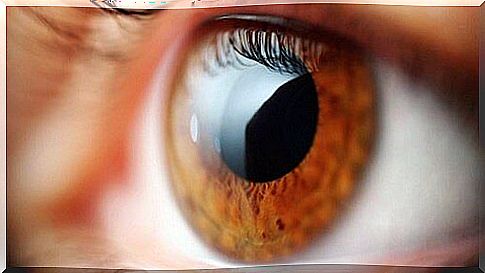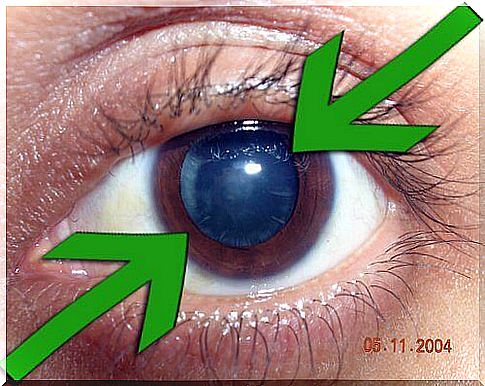Blurred Vision – What Are Its Causes?

How do you know if you have blurred vision ? Can you not see the objects around you very well, have problems recognizing people (especially their faces), have problems reading or have the impression that the letters on your computer screen or the pages of a book are “floating”? Perhaps it is high time to consult a specialist.
Later in this article, you’ll learn what blurred vision is, and the basic facts about its causes and treatments.
Blurred vision: the most important causes
The following list will help you identify what is causing your blurred vision and the most common symptoms.
Astigmatism or myopia
In the first place among the described causes is a disease called astigmatism, which worsens near vision, while the second reduces the maximum distance at which we can see well. In addition to the fact that they cause blurred vision, it also disturbs the entire field of view.
Cataract
It is the most common disease in people over the age of 60, although sometimes they may not have any noticeable symptoms. In other cases, there may be corneal opacity, blurred vision, light sensitivity, halo effects around light sources, double vision, and progressive loss of acute vision.

Diabetes
Blurred vision may be one of the many symptoms of a blood sugar disruption. Special attention should be paid to this problem if you have diabetes, as failure to treat it properly can cause more serious vision problems, including a complete loss of your eyesight.
Graves’ disease
Weight loss and increased appetite, fast heartbeat, high blood pressure, seizures and blurred vision are the best known symptoms of Graves’ disease, a condition that affects the functioning of the thyroid gland.
Multiple sclerosis
This neurodegenerative disease is often associated with many vision problems, including blurred vision. It can also cause bladder control problems, sensory disturbances, etc.
Hypoglycemia
When blood sugar levels suddenly drop, it can not only cause blurred vision, but also other types of vision problems, a feeling of confusion, double vision, seizures, disturbance in concentration, anxiety, palpitations and hand tremors.

Migraine
When you have an acute headache from muscle or neurological problems, blurred vision is one of the most common symptoms. Other common symptoms include, but are not limited to, nausea, photosensitivity, eye pain, and vomiting. Migraines can have the same symptoms.
High blood pressure and glaucoma
Whether you have high blood pressure or an excessive increase in pressure in the eyeball (glaucoma), we may have difficulty seeing properly. In addition, both conditions can also cause additional problems such as fainting, complete or partial vision loss, tachycardia, etc.
How to treat blurred vision?
If you frequently experience any of the symptoms described above, you should consult your doctor as soon as possible. If, on the other hand, they occur only sporadically, just follow the tips below:
Reduce your stress levels
By following the advice above, it will also help to lower your blood pressure and reduce your general anxiety. Thanks to this, you will be much calmer and your eyesight will improve. Hypertension is one of the worst enemies for your eyes because it makes them tired and causes poor eyesight.
If you suffer from high pressure in the eyeball, reducing your stress levels will also be of great benefit to your health.
Make every effort to reduce your stress levels, anger and anxiety, so that the negative effects of these three emotional states will not accumulate in your case, causing blurred vision, among other things.
Take care of relaxation for your eyes
If you spend a lot of time in front of a computer or laptop screen every day, your eyes may become tired, which naturally causes blurred vision. Stay seated and close your eyes for a moment.
Another notable way to care for your eyes is to stand up, place your index finger in front of your nose, and then slowly zoom in and out of your face while keeping your eyes focused on your finger. Then repeat the entire procedure, but this time move your finger to the right and left in a smooth swinging motion.
Just remember that you should only move your eyes, not your head.

Focus changes
Choose an object and look at it focusing all your eyes on it. Then try not to focus on the subject you want to focus on, instead of trying to get your eyes on the entire area around it.
One of the reasons why our vision becomes blurred is that we are used to focusing our eyesight on only one point instead of frequently changing the distance we are looking at and focus – one of the main reasons for this phenomenon are the numerous stimulants and stimulant products we consume in large amounts every day.
Control your diet
You probably already know that water is your best ally to keep your body and eyes hydrated.
In addition, water also plays an important role in the process of removing toxins accumulated in the body, which may adversely affect the functioning of the liver, which is an organ directly related to the condition of the eyes.
If you experience blurred vision or vision deterioration in general, try to follow a fat-free diet and avoid fried foods. Drink infusions containing boldo every day, eat steamed or partially cooked vegetables (especially broccoli, spinach and beetroot) along with whole grain rice.
Do not eat fats, meat and dairy products. At the same time, you should increase your intake of foods high in vitamins A and C. You can find both of these ingredients in citrus fruits, carrots, papaya and broccoli.
Follow healthy habits
Increase the font size on your computer screen so that you do not have to move the screen closer to your eyes, do not read in insufficient lighting (natural light is better for reading than artificial light).
Be sure to keep at least one meter away from a TV screen, and wear sunglasses when taking a break from work or returning home.
It is also good practice to spend your free time in a rural setting or in a completely natural environment, such as a meadow or a beach. This way you can provide your eyes with a really varied field of view.
As is the case with panoramic photography, the eyes also need a rest from the accumulation of many objects in one place, especially from all those bright colors, flashing neon lights and harsh artificial lighting.









